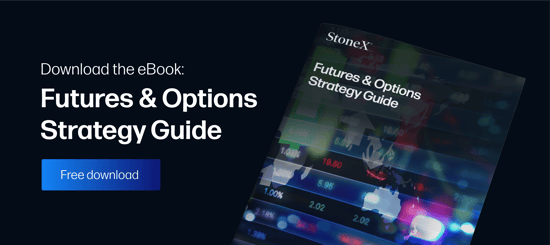Price is the current value of a security as determined by open market forces. It’s the product of an ongoing and unfettered interaction between buyers and sellers. Subsequently, as bids and asks hit a market, the relative value of the security in question evolves. This process is known as price discovery.
Price action is the term used to describe each movement of a security’s value. Accordingly, the tick-by-tick scrutiny of price action is a key consideration for many technical traders. For instance, in the world’s currency markets, traders frequently implement forex price action trading methods and strategies. Let’s take a look at the basics and break down a strategic example.
Price Action Trading 101: The Basics
Price action trading is a unique discipline in that it focuses solely on the movements of price itself. Here are three basic pillars of the strategy:
No Fundamental Bias
Traditional market fundamentals—such as breaking news, economic events, or changes to monetary policy—are ignored. All that matters is the behavior of price.
Context Is King
Traders use historic data sets and technical tools to place price action into a manageable context. Analytics such as strategic backtesting, walk-forward simulations, and technical indicators are common facets of price action trading methodologies.
Reduced Time Horizons
Price action trading strategies are designed for the short and intermediate time frames. Intraday, day, and swing methodologies are ideal for this type of trading.
It’s important to remember that price action trading is a purely technical approach. Accordingly, optimal target markets are those that feature consistent liquidity and volatility. Futures, stocks, cryptocurrencies, and currencies are four examples of opportune trading venues. Among the best are the global currency markets, which facilitate the application of countless forex price action trading methods and strategies on a daily basis.
Forex Price Action Trading Strategies
In reality, there are thousands of price action trading strategies available free or for purchase online. However, be forewarned―past performance is not indicative of future results.
Buying or selling from support and resistance levels is among the most basic forex price action trading methods and strategies. To execute this strategy, a trader must first define a specific price point as being potential support or resistance. You can accomplish this by using technical tools or identifying the presence of naturally occurring big round numbers. A few technicals that work great as support-and-resistance levels are Fibonacci retracements, moving averages, or pivot points.
Any trades are educational examples only. They do not include commissions and fees.
Once you’ve identified a support or resistance level, you can enter a buy or sell order into the market. For example, assume that there is a prevalent intraday uptrend developing in the EUR/USD. Shortly after the traditional NYSE cash open (9:30 a.m. EST), Trader A decides that an immediate pullback in the EUR/USD may set up a short-term buying opportunity. Using Fibonacci retracements, Trader A applies the following strategy:
- Trader A quantifies the 38 percent Fibonacci retracement level from the intrasession high to the low
- Trader A places a buy limit order in the queue at or slightly above the 38 percent retracement level
- On the order being elected, Trader A evaluates evolving price action in real time
In virtually all forex price action trading methods and strategies, a trader must read price successfully to make a profit. In the example above, being proficient in the third step is imperative to success. This involves properly interpreting the two types of price action:
- Positive: Positive price action represents unrealized profits. This occurs when price moves from a market entry point in a beneficial manner, creating an account gain.
- Negative: Negative price action signifies unrealized losses. This occurs when price moves against a market entry point, creating an account drawdown.
The biggest mistake that many price action traders make is that they accept drawdowns for far too long. Remember, the only thing that matters is the direction of price―negative price action is itself confirmation that the trade didn’t work.
The general rule of thumb for forex price action trading methods and strategies is this: If price is moving in your favor, then your methodology is at least temporarily valid. If price is going against you, cut your losses and move on!
Want to Learn More Forex Price Action Trading Methods and Strategies?
The price action strategy we broke down above is only one of the thousands that traders can implement. If you think that this type of trading appeals to you, a little due diligence will offer you an array of options. For more information, schedule your free one-on-one consultation with a StoneX market professional today.



